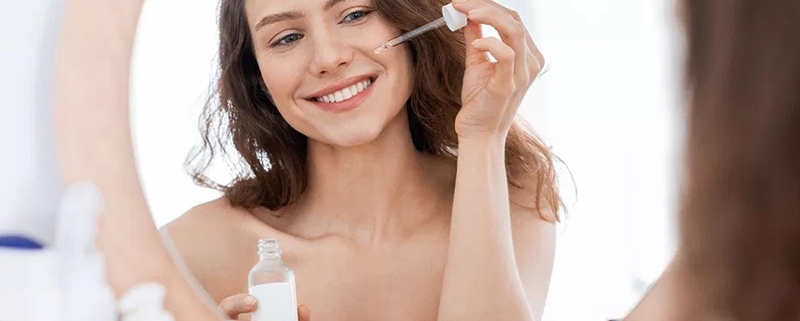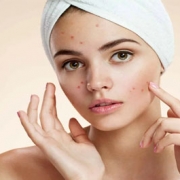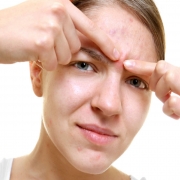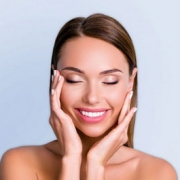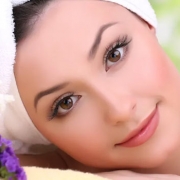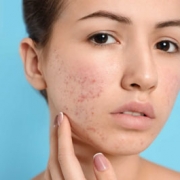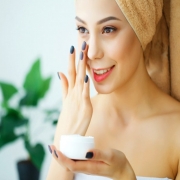The role of BHAs in skin care
BHA stands for beta hydroxy acid. It’s oil-soluble, meaning it loves oil, and it’s an exfoliating acid. Technically, there’s only one kind of BHA: salicylic acid.”
Chances are you’ve seen salicylic acid in the ingredients list for an acne product, since it’s great for busting breakouts as it penetrates the skin very deeply. Salicylic acid exfoliates by removing dead skin cells, which is why it’s often suggested for complexions that need more exfoliation as well as for treating acne and oily skin. Through exfoliation with acids, you can rid yourself of those topical things you see happen to the skin, such as breakouts, clogged pores, blackheads and whiteheads. Over time, salicylic acid will decrease oil secretion as well as reduce redness and inflammation.
How often should you use products with BHA?
It absolutely first and foremost depends on skin type, and the BHA in the product. The general rule is you only want to exfoliate two to three times a week for skin that isn’t experiencing breakouts or oil. If your skin struggles with acne or excess oil, you can use a lower percentage of BHA every day to clear skin of debris, excess oil, dirt and makeup. Specifically, 1% or 2% salicylic acid is often gentle enough to use every single day for the purpose of treating acne or a breakout. Products with higher percentages of BHAs, such as peels, are designed to be used once a week.
BHAs can be found in a range of skincare products.
There are several categories where BHAs are useful, in cleansers of course, as well as products that stay on skin, including topical treatments like toners, serums, or spot treatments.
BHAs and AHAs often appear together, but don’t make the mistake of thinking they’re the same thing. AHAs—alpha hydroxy acids—are also exfoliating acids, but there are several key differences:
- BHAs are organic compounds with anti-inflammatory properties.
- BHA stands for beta hydroxy acid.
- They help new skin cells replace old ones.
- BHAs are oil-soluble.
- They exfoliate the top layer of skin and dissolve excess sebum, found in congested pores.
- BHAs can help soothe inflammation specially sensitive skin or rosacea, … .
- They reduce the appearance of wrinkles on the skin and improve the skin’s texture.
- Because they are oil-soluble, they mostly preferred for normal to oily skin that’s prone to bumps, clogs, blemishes, and enlarged pores.
BHAs include:
- salicylic acid
- beta-hydroxybutanoic acid
- tropic acid
- trethocanic acid
the BHA most commonly used in cosmetics is salicylic acid.
Benefits:
- Treat Acne
- Treat Fungal Infections
- Deep Exfoliation
Side Effects of BHAs
- Skin Irritation
- Dryness
- Redness And Burning

